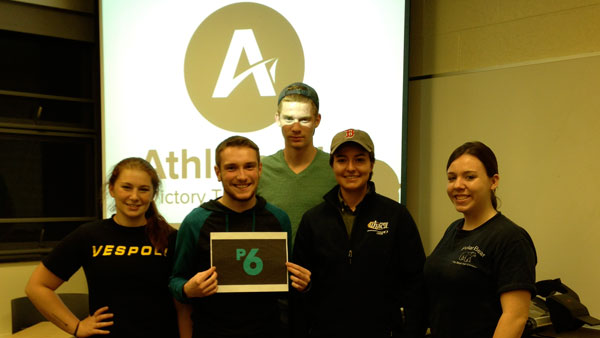In the months leading up to the 2014 Winter Olympic Games in Sochi, Russia, much of the talk surrounded Russia’s anti-gay policies. However, now that the games have been going on for almost two weeks, there haven’t really been giant outbursts of anti-LGBTQ acts that have surrounded the Olympic Games. Or have there?
At least 19 people across Russia were arrested for protesting the treatment of lesbian, gay, bisexual and transgender citizens Feb. 7, the day of the opening ceremonies. Many of the protesters reported being beaten and sexually threatened by government authorities. To make matters worse, the International Olympic Committee actually defended these arrests as necessary.
Other minor issues have been popping up around the country as well. Hunters, a Russian gay dating mobile application similar to Grindr, was shut down. Anyone trying to log on to the app was met with the message, “You will be arrested and jailed for gay propaganda in Sochi according to Russian Federal Law 135 Section 6.”
Russia also blocked the website of Justin Kripps, a Canadian bobsledder, after he posted a picture of his bobsled team being weighed in their sled in their underwear. Users in Russia trying to access the website were shown an error message reading, “Dear users: We are very sorry, but the access to the requested content is forbidden because of a law or decision by lawmakers of the Russian Federation.”
Several other journalists have reported that some of the Russian people have expressed extreme hatred toward LGBTQ people. This sentiment was seen during a protest held by one American man and two Russian men. The trio held up signs with the phrases “GOD BLESS PUTIN BECAUSE HE IS AGAINST THE SIN OF SODOMY AND GOD BELIEVES IT IS DISGUSTING” and “HOMO SEX IS SIN.”
Others, however, have shown massive support and want to get the message out that not all of Russia shares anti-LGBTQ sentiment. This is reflected in a few stories coming out of Sochi. In the opening ceremonies, the German delegation showed up in full rainbow gear. Sochi flag bearers were required to wear rainbow gloves, and the volunteers were given a rainbow-colored uniform to wear as well. Part of the entertainment at the opening ceremonies included t.A.T.u., a pseudo-lesbian pop duo. Even though the two aren’t actually lesbians, the choice to include them in the opening ceremonies seems a bit puzzling.
During the games, Cheryl Maas, a gay snowboarder from the Netherlands, held up a glove to the camera with unicorns and rainbows on it. While this may not be overly defiant protest, it is one of the only ones that has been televised by mainstream news media.
Most notably, an LGBTQ athlete from the Netherlands, Ireen Wust, was “cuddled” by Russian President Vladimir Putin after winning a gold medal in speedskating. Wust and her teammates were out at a Russian nightclub celebrating her victory when Putin showed up to party with the Dutch athletes. After talking with Wust, he congratulated her with a hug. Wust had been publicly hailed as the first LGBTQ athlete of the Olympics to win a gold medal immediately after her victory, so there was little chance Putin didn’t know she was bisexual.
The Human Rights Campaign has a counter online to see how much airtime NBC is giving LGBTQ issues. As of Feb. 18, the counter sat at 1 hour, 37 minutes and two seconds. Coupled with recent pro-LGBTQ ads from the Canadian Institute of Diversity and Inclusion, Athlete Ally and XXL, a Norwegian sports brand, the issue of LGBTQ rights is getting decent media coverage. However, one can wonder how much more coverage the issue would be getting if the media and visitors were not feeling repressed by the Russian government.
All in all, the Sochi Olympic Games are still not a safe place for LGBTQ athletes and others to openly express themselves. But considering the violence and speculation that lead up to the games, the scenario could have been worse.














